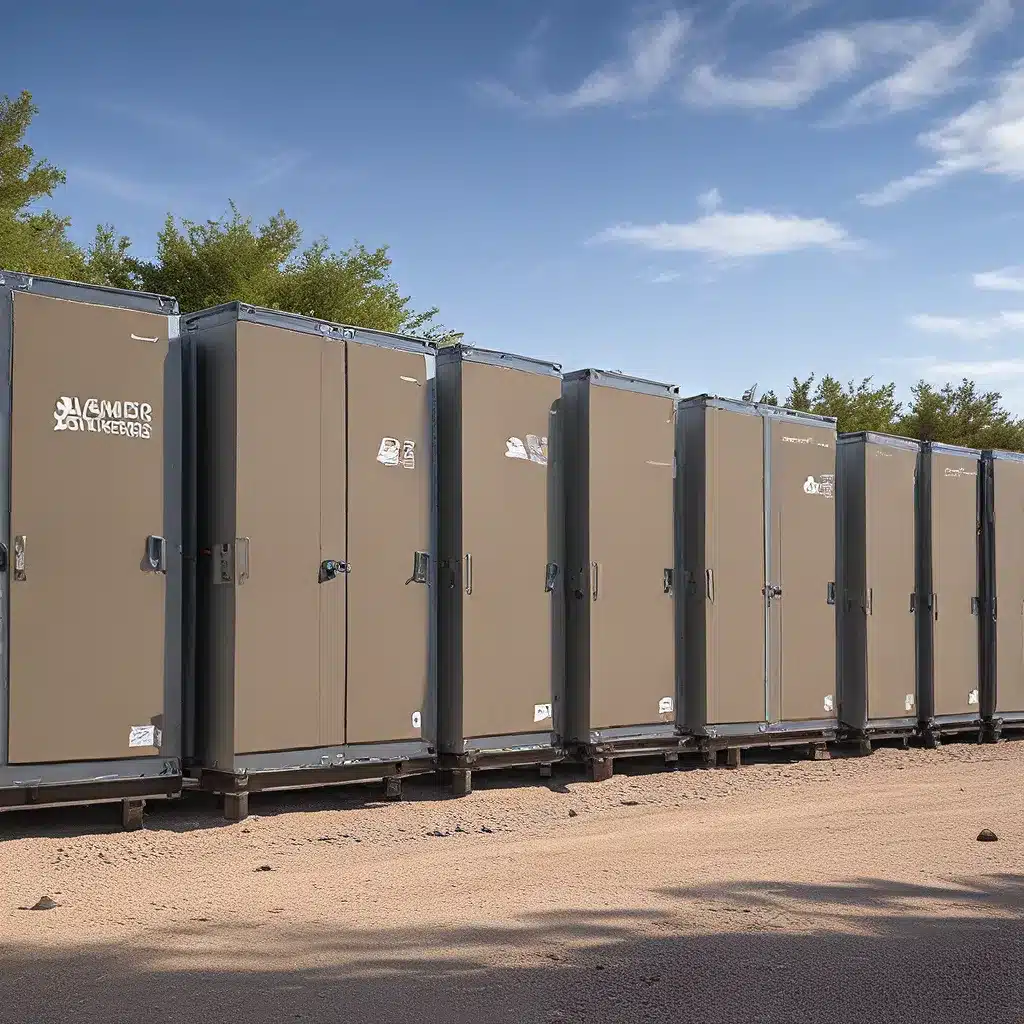
The Urgent Need for Next-Gen Energy Storage
In our rapidly evolving world, where renewable energy sources like solar and wind are becoming increasingly prevalent, the need for robust and efficient energy storage solutions has never been more crucial. As we strive to wean ourselves off fossil fuels and build a cleaner, more sustainable future, the ability to effectively store and distribute energy is the missing puzzle piece that will unlock the true potential of renewable power.
You see, the thing about wind and solar is that they’re inherently intermittent – the sun doesn’t always shine, and the wind doesn’t always blow. That’s where energy storage comes in – it allows us to capture and save that clean, renewable energy for when we need it most. It’s like a power bank for the grid, if you will.
Now, I know what you’re thinking – we already have batteries, right? Well, yes and no. The batteries we use in our phones and laptops are great for small-scale applications, but when it comes to the massive energy demands of the grid, we need something far more robust and scalable. That’s where the evolution of energy storage comes into play.
Revolutionizing the Grid: The Rise of Battery Energy Storage Systems (BESS)
Enter Battery Energy Storage Systems (BESS) – the utility-grade energy storage solutions that are poised to transform the way we power our homes, businesses, and communities. These advanced systems are designed to seamlessly integrate with renewable energy sources, creating a symbiotic relationship that optimizes efficiency and reliability.
As National Grid explains, BESS are devices that enable energy from renewables like solar and wind to be stored and then released when the power is needed most. Imagine a giant power bank, if you will, that can soak up excess renewable energy during periods of high generation and then discharge it when demand peaks.
But it’s not just about storing energy – it’s about managing it. These sophisticated systems use intelligent software and algorithms to coordinate energy production, ensuring that supply and demand are perfectly balanced. They’re the unsung heroes keeping the lights on and the air conditioning humming, even when the sun isn’t shining, and the wind isn’t blowing.
Tackling the Challenges of Renewable Energy Integration
One of the key advantages of BESS is their ability to help integrate more renewable energy into the grid. As National Grid points out, fossil-fuel fired plants have traditionally been used to manage the peaks and troughs of energy supply and demand. But with BESS, we can start to replace these polluting “peaking power generators” with clean, efficient storage solutions.
This is a game-changer, folks. You see, the more renewable energy we can get onto the grid, the closer we get to that elusive goal of net-zero carbon emissions. But the challenge has always been finding a way to reliably store and distribute that clean power. BESS are the answer – they’re the missing link that will help us harness the full potential of wind, solar, and other renewable sources.
And the benefits don’t stop there. According to the UK government, technologies like BESS could save the energy system up to £40 billion ($48 billion) by 2050, ultimately reducing people’s energy bills. Talk about a win-win!
Powering the Future: The Evolution of Battery Technologies
Now, you might be wondering, “Okay, but what’s so special about these BESS? Aren’t they just glorified batteries?” Well, my friend, it’s time to dive a little deeper into the evolution of battery technology.
While the lithium-ion batteries we use in our gadgets are the current mainstay of BESS, the energy storage landscape is rapidly evolving. As the researchers at Lawrence Berkeley National Laboratory (LBL) explain, there’s a whole host of other battery technologies in the works, each with its own unique advantages.
For example, solid-state batteries promise improved safety and energy density, while flow batteries offer the ability to store energy for longer durations. And that’s just the tip of the iceberg – scientists and engineers are constantly pushing the boundaries, exploring new materials and designs to create batteries that are safer, more powerful, and more cost-effective.
But it’s not just about the batteries themselves – it’s also about the systems that manage and optimize their performance. As the team at EVLO Energy Storage, a subsidiary of Hydro-Québec, explains, their advanced modeling and testing processes help ensure the safety and performance of their BESS, while also catching and resolving potential issues early on.
Toward a Cleaner, More Resilient Energy Future
As we look to the future, it’s clear that energy storage will be the linchpin of our transition to a more sustainable, renewable-powered world. And with the rapid advancements in battery technology and BESS integration, the possibilities are truly exciting.
Imagine a future where renewable energy solutions like solar and wind are seamlessly integrated with advanced storage systems, providing a reliable, cost-effective, and environmentally-friendly source of power for our homes, businesses, and communities. A future where blackouts and power outages are a thing of the past, and our energy grids are more resilient than ever before.
It’s a future that’s within our grasp, my friends. All it takes is a little ingenuity, a lot of hard work, and a steadfast commitment to innovation and sustainability. And with the incredible breakthroughs happening in the world of energy storage, I have no doubt that we’re well on our way to making that future a reality.
So, what are we waiting for? Let’s dive in, explore the latest advancements, and unleash the full potential of renewable energy – one battery, one BESS, and one clean-powered community at a time. The future is ours to shape, and it’s never been brighter.

